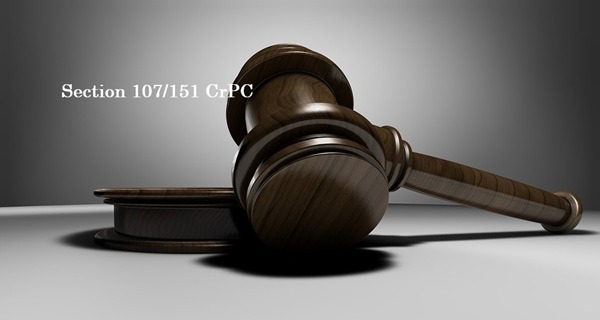AdVocate harshit Sachar | chamber no: 617 | district courts ludhiana | 2817 gurdev nagar ludhiana | ✆+91 7889228369
Understanding “751 CrPC” Cases in Punjab — What It Means and How They End
In Punjab, it is common to hear that police have “charged both parties under 751 CrPC” during a dispute. In reality, there is no Section 751 in the Code of Criminal Procedure, 1973 (CrPC). This term is usually a local reference to preventive action taken by the police under Section 107/151 CrPC or similar provisions.
CRIMINAL LAW
Advocate Harshit Sachar
8/10/20251 min read


Section 751 CrPC (which in reality is Section 107/151/160 IPC + 107/151/CrPC that police often misquote as "751 CrPC" in Punjab)
Understanding “751 CrPC” Cases in Punjab — What It Means and How They End
In Punjab, it is common to hear that police have “charged both parties under 751 CrPC” during a dispute. In reality, there is no Section 751 in the Code of Criminal Procedure, 1973 (CrPC). This term is usually a local reference to preventive action taken by the police under Section 107/151 CrPC or similar provisions.
Why Police Use “751 CrPC” in Disputes
When a quarrel, fight, or heated exchange occurs between two parties, the police sometimes register both sides under preventive sections.
These provisions allow police to:
Stop a situation from turning violent
Arrest parties to prevent a breach of peace
Bring both sides before the Executive Magistrate for undertaking to keep the peace
In Punjab, officers may casually refer to such preventive custody as “751 CrPC” in local police station records or public conversations.
How Such Cases End
Cases under preventive sections are not regular criminal trials. Instead:
Both parties are asked to sign bonds promising not to disturb the peace for a certain period (usually 6 months to 1 year)
If both sides agree and give the undertaking, they are released
The matter usually ends without any conviction or permanent criminal record
However, if either party violates the bond, they can be re-arrested.
Getting Bail in Punjab
In preventive arrests:
Immediate Police Station Bail – Often granted within hours if parties cooperate
Bail from Executive Magistrate – If the police forward the case, the magistrate can grant bail and set bond conditions
Personal Bond & Surety – Usually, both a personal undertaking and a surety are required
In most cases, a local advocate can help secure release the same day.
Key Takeaway
The so-called “751 CrPC” is not a criminal charge in the strict sense. It is a preventive action meant to calm disputes before they escalate. Understanding your rights and the process helps in resolving the matter quickly without unnecessary legal trouble.
Services
Sachar Law Firm – Advocate, Lawyer, Attorney & Solicitor Services in India | Ludhiana, Punjab.
Expert legal advice across various practice areas - Civil, Criminal, Divorce and Matrimonial, Consumer and Corporate laws, Bail Matters, Property Contract Disputes, Insurance claim disputes, cyber Crime cases, Cheque bounce, Family Divisions, Arbitration. Bail Matters, Electricity Board Cases, Appeals before Session court Ludhiana, Marriage certificate, Court Marriage, Succession Certificate Accident Claim (MACT), NRI Legal Matters, NRI Property Matters.
“Get in Touch with Sachar Law Firm”
Quick Links
© 2025. All rights reserved.
Advocate Harshit SACHAR
Legal Blog
2817, 1st Floor , Gurdev Nagar, Ludhiana, Punjab -141001
Address: Office Cum Res:
Corporate Liquidation and Recovery Litigation
☎️ 0161 7965410
